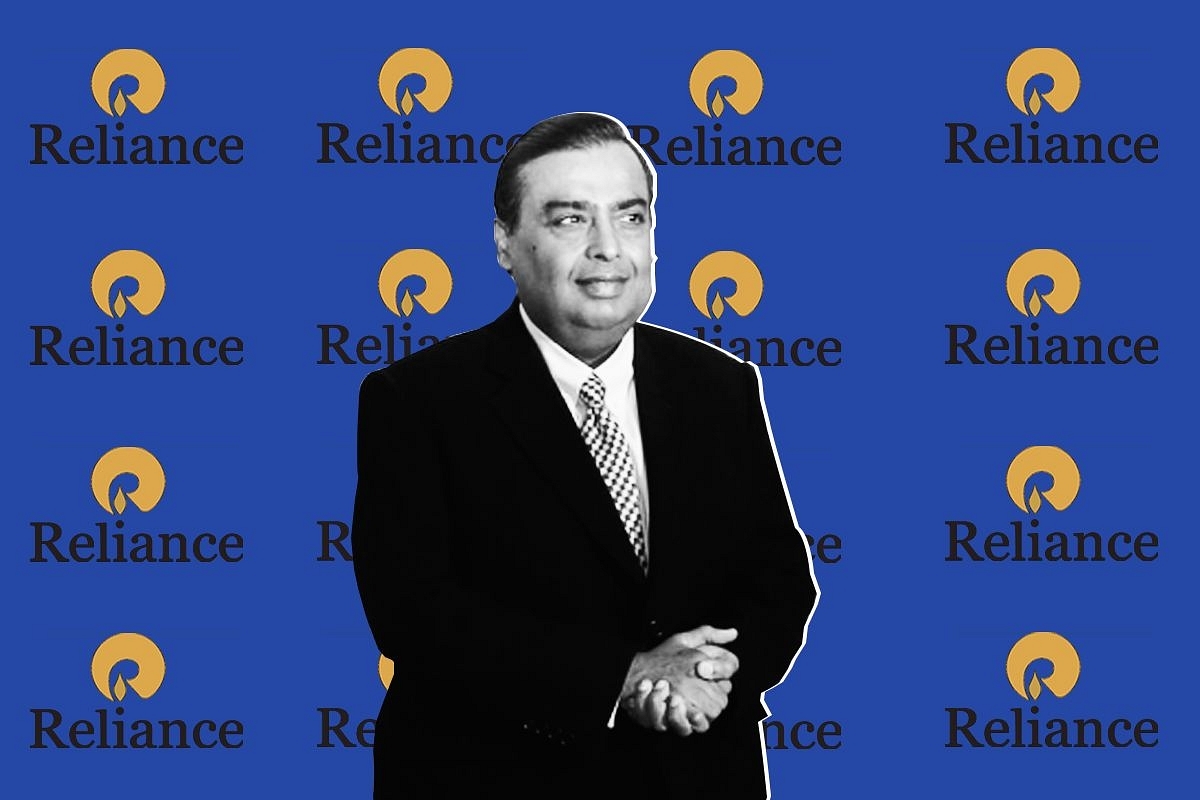Business
What Ambani Is Trying To Do By Buying Future Is Take On Amazon And Walmart, In Both Online And Offline Retail
- Reliance, which is already a pipes-to-platforms company through Jio Platforms, is now using Reliance Retail to complete the offline consolidation that is needed to take on the Amazons and Walmarts of the world.

Mukesh Ambani
Reliance Industries’ deal to buy Kishore Biyani’s Future Group tells us what the future is in store: the rise of an Indian version of Walmart, the USA’s biggest offline retailer. If you add the recent huge investments from the likes of Facebook, Google and Qualcomm in Jio Platforms, Mukesh Ambani’s Reliance is essentially trying to become a cross between Amazon and Walmart in the Indian context.
A Reliance subsidiary, Reliance Retail Ventures, is paying the Biyanis Rs 5,628 crore to buy out his retail, logistics and warehousing assets and taking on the latter’s debts and liabilities worth around Rs 19,000 crore. This makes the total cost of the deal around Rs 24,700 crore.
On paper, this seems as if Reliance is paying top dollar to buy out a minor rival. Reliance Retail, according to an Economic Times report, is seven times its nearest rival. It is already India’s largest offline retailer with sales of Rs 162,000 crore while Future Group’s sales are in the region of Rs 30,000 crore. Paying Rs 25,700 crore to buy additional sales (including infrastructure) of Rs 30,000 crore hardly sounds like a steal.
But there are good reasons why taking out its biggest rival makes sense for Reliance.
First, the battle is no longer between one offline retailer versus the rest. It is offline versus online, and Reliance’s real rival is not Future Group or the Aditya Birla Group, but Amazon and Walmart, which bought Flipkart two years ago.
Second, the future is not even about online versus offline too. The reality will be omni-channel marketing. Customers may prefer online channels for some purchases and offline for others; yet others may do their research online or offline and then order through the other channel.
For example, customers may check out a mobile phone at a Reliance Digital store and then order a cheaper version of the model they like from Amazon or Flipkart. Conversely, customers may research a car model online, but will buy it actually from an offline dealer. You cannot hope to become a dominant player in retail by choosing to remain only an offline player or only online.
This was exactly the logic why Amazon India bought into offline retailer More, and Walmart, the world’s largest retailer, bought into Flipkart. In the US, Amazon has bought grocery chain Whole Foods and has now launched Amazon bookshops and fashion stores – categories it first helped eviscerate by selling books online and making ebooks ubiquitous.
Third, in addition to this, in India there is a whole new ecosystem – the several crore kirana stores – to conquer. These stores need to be brought into one of the main omni-channel networks. The kirana store, the Indian equivalent of the US mom-and-pop store, is the last mile in retail.
The humble kirana shop – often operated by someone with mere economic survival in mind – has one big plus: it has intimate knowledge of its customers. The shop owner knows who needs to be served and how, what they buy, whether they are creditworthy, et al.
The big challenge is to rope in kirana stores into the offline-online network so that your actual deliveries can be handled locally at lower logistical costs. If this process is successful, there will be consolidation in the kirana sector as well, as some of the more financially sound entrepreneurs buy out weaker locals in the same neighbourhood.
The omni-channel network, whether Reliance or Amazon or Flipkart, can then use huge sourcing power and logistical strengths to carve out high margins for themselves and the kirana networks linked to it.
Reliance, which is already a pipes-to-platforms company through Jio Platforms, is now using Reliance Retail to complete the offline consolidation that is needed to take on the Amazons and Walmarts of the world. It is hoping to be both in the Indian context.
Support Swarajya's 50 Ground Reports Project & Sponsor A Story
Every general election Swarajya does a 50 ground reports project.
Aimed only at serious readers and those who appreciate the nuances of political undercurrents, the project provides a sense of India's electoral landscape. As you know, these reports are produced after considerable investment of travel, time and effort on the ground.
This time too we've kicked off the project in style and have covered over 30 constituencies already. If you're someone who appreciates such work and have enjoyed our coverage please consider sponsoring a ground report for just Rs 2999 to Rs 19,999 - it goes a long way in helping us produce more quality reportage.
You can also back this project by becoming a subscriber for as little as Rs 999 - so do click on this links and choose a plan that suits you and back us.
Click below to contribute.
Latest